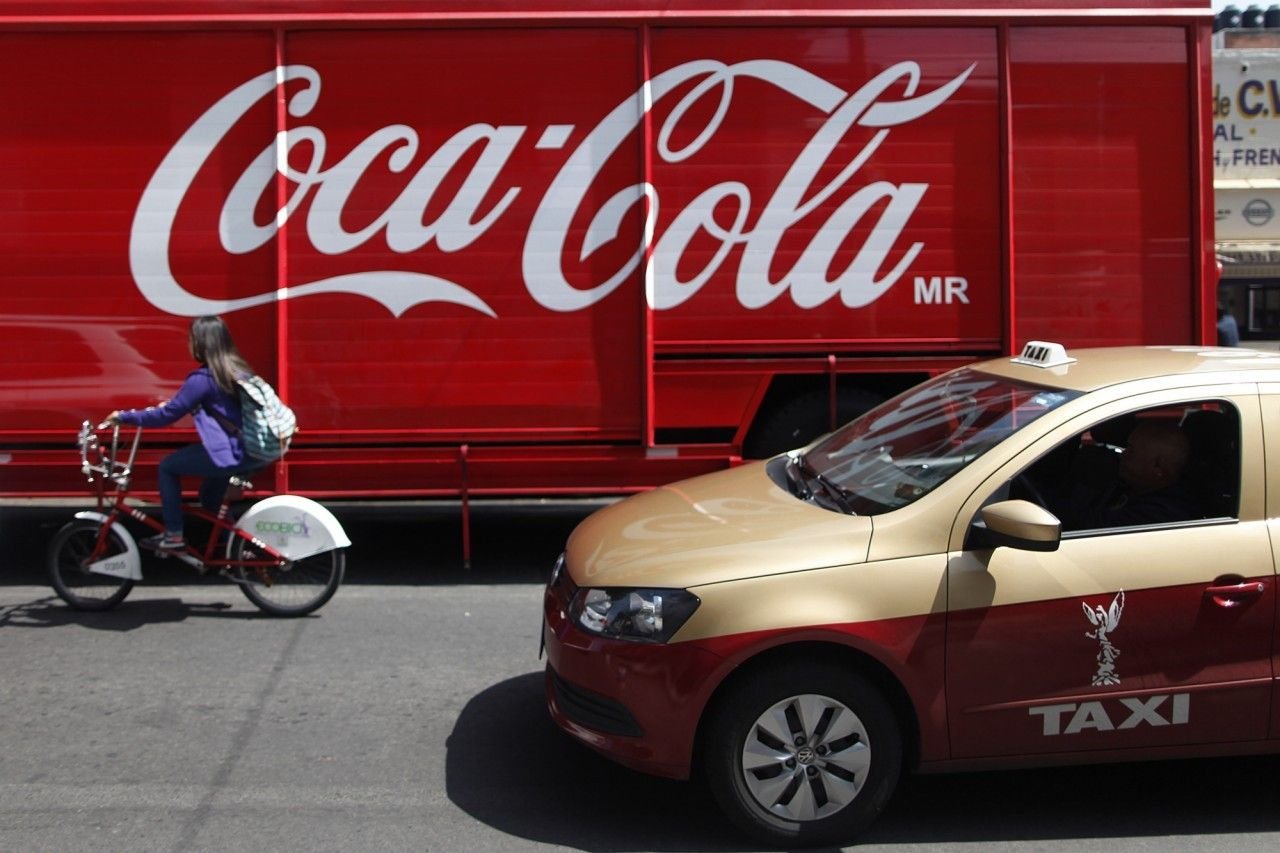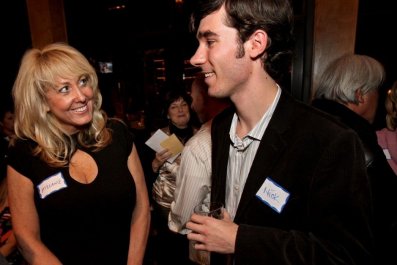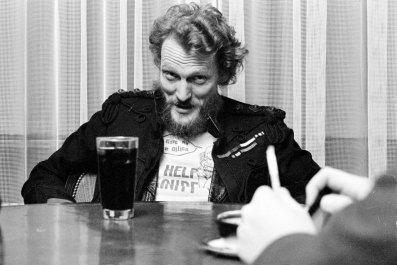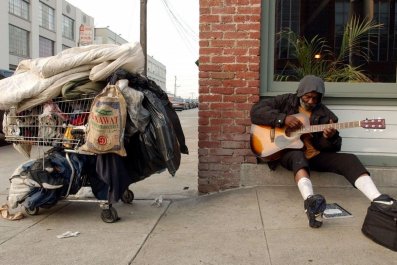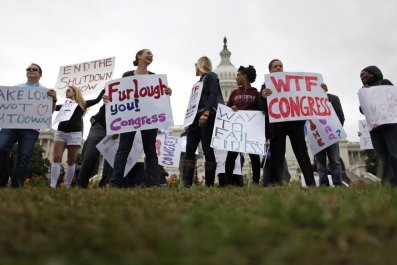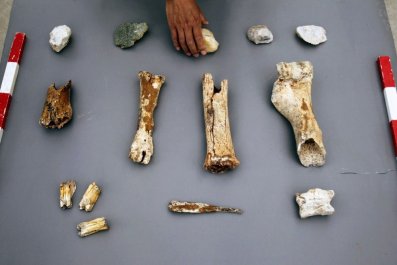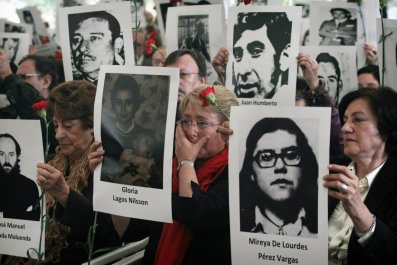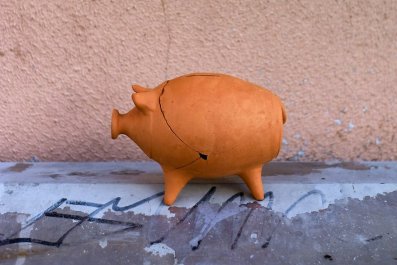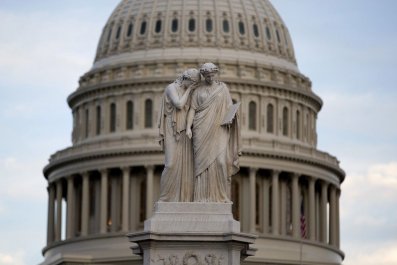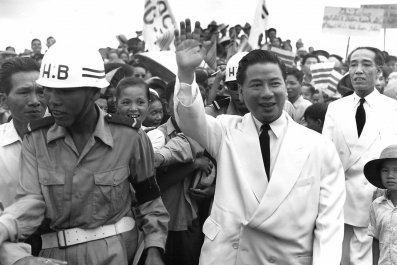Has Mexico become the latest child in New York City Mayor Michael Bloomberg's ever-expanding nanny state?
Bloomberg's push for a soda tax south of the border is the most controversial in a series of programs he is funding to improve the health of millions of Mexicans. In 2007, Bloomberg Philanthropies started supporting tobacco-control and road-safety programs in Mexico that helped spawn a federal anti-tobacco law and establish road safety projects in at least six Mexican cities.
But his recent initiative against obesity, a three-year, $10 million grant given to research groups and advocacy organizations that is being used to promote a soft-drink tax in Mexico, has drawn fire from both activists and multinational companies. Coca-Cola has called the tax "discriminatory" and inefficient. Emilio Herrera, director of the National Association of Soft Drinks and Carbonated Water Producers, says it would eliminate scores of jobs and complains about Bloomberg's unique brand of school-marm imperialism. "He can do this in his own country, but what we don't understand is why he is meddling in a country like Mexico," says Herrera, who points to Bloomberg's failure to enact a soda tax in New York as further proof that the mayor should not be trying to influence Mexico's public policies.
Activists who support the tax say the backlash - opponents are calling the proposed legislation "the Bloomberg tax" - is little more than a distraction. "It is a dirty war coming from the companies, especially the soft drink ones, and specifically Coca-Cola," says Alejandro Calvillo, the director of Consumer Power, one of the organizations receiving funds from Bloomberg Philanthropies.
Most health experts in Mexico support the soft drink tax. For years, Mexican and international health organizations have warned about an obesity and diabetes epidemic in the country. Water fountains are hard, if not impossible, to find in public spaces. Perhaps more ubiquitous than taco stands are street vendors selling soft drinks outside metro stations, schools and office buildings. And despite efforts by nongovernmental organizations to push for more nutritious food options at schools and improved product labeling, 32 percent of Mexicans are now obese - defined by the World Health Organization as having a body-mass index of 30 or more - up from 24 percent in 2000.
In 2006, then-president Felipe Calderon proposed a 5 percent tax on bubbly drinks; the lower house of Congress approved the bill, but it was shot down by the Senate.
After a weeklong visit to Mexico in 2011, Olivier De Schutter, U.N. Special Rapporteur on the right to food, called for the country to declare a state of emergency and urged it to battle food poverty and obesity. A 2013 United Nations report using data from 2008 determined that Mexico's obesity rate had surpassed that of the United States, long considered one of the fattest countries in the world.
Enrique Peña Nieto, who became Mexico's president in December, recently introduced fiscal reforms that include a 15 percent tax on soft drinks, beer, candy and ice-cream, among others. The lower house of Congress has until Sunday to approve the bill, which Bloomberg publicly endorsed .
"Thanks to Mexican President Enrique Peña Nieto for taking action on the obesity epidemic & supporting a new tax on sugary drinks. Cc: @EPN," wrote Mr. Bloomberg on Twitter on September 10. Peña Nieto quickly responded with a tweet in Spanish. "I appreciate the recognition of the very important reform agenda we are undertaking in Mexico, @MikeBloomberg. I hope to greet you soon in NY."
Bloomberg Philanthropies has funded health-related programs in Brazil, Russia, India, Turkey, and Vietnam, but the mayor has long been friendly with Mexican leaders and activists who have welcomed his generous funding for health issues. In 2009, Bloomberg Philanthropies presented an award to Mexico City's Secretary of Health during the Global Conference on Tobacco and Health in Mumbai, India, for his political commitment to smoke-free air legislation.
According to Mauricio Hernandez Avila, director of the National Institute of Public Health, the government received approximately $1.3 million from Bloomberg Philanthropies in 2007, which helped fund Mexico's first anti-tobacco government office and pay for the first anti-tobacco commissioner's salary. In 2008, Mexico passed an anti-tobacco law, requiring tobacco packages to include graphic pictures of health risks associated with smoking - including sickly fetuses and sobbing children standing by their dead relatives' bodies - and establishing smoke-free public spaces.
At the same time, Bloomberg was funding a road safety program in Mexico, which, according to Hernandez Avila, was a matter that was "practically sleeping, did not exist." By 2010, accident prevention program worth $2 million were in effect in six cities. A system of Breathalyzer checkpoints to curb drunk driving in Mexico City has expanded to more than 30 municipalities with Bloomberg money.
Still, Bloomberg's soft-drink tax efforts, at home and abroad, remain the best known, and have even become the subject of good-naturedly mocking. Miguel Bloombito, a Twitter account that regularly parodies the mayor's broken Spanish, posted this at the height of the soda ban debate in New York: "Banñing todos los drinkos con sugaro es cheaperado than making las seats del subwayo widero para los mas grande culos."



